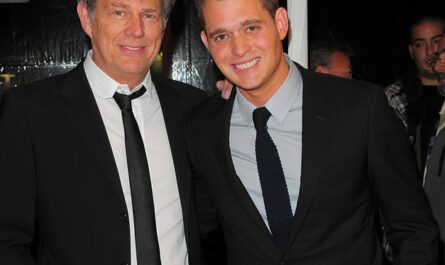The 1970s was a transformative decade for American actor Harrison Ford. Prior to this period, Ford had done small roles in television shows and films but struggled to find major success. However, two iconic roles in particular would launch Ford’s career into the stratosphere – Han Solo in Star Wars and Captain Benjamin Willard in Apocalypse Now. These performances in hugely popular and influential films of the late 1970s cemented Ford as a bonafide movie star and established him as a Hollywood leading man for decades to come.
Early Career Struggles
Born in 1942 in Chicago, Illinois, Ford had aspirations of becoming an actor from a young age. After studying acting and philosophy in college, he began looking for work in Hollywood in the late 1960s. However, it was a struggle for Ford to find substantial roles in the early years. He appeared in several television shows like Gunsmoke, The Virginian, and Ironside but they were usually one-episode bit parts. On the big screen, Ford had small uncredited roles in films like Dead Heat on a Merry-Go-Round (1966) and A Time for Killing (1967).
By the early 1970s, the 30-year-old Ford was taking any jobs he could find to support his growing family, including working as a carpenter. “I was a housepainter, a construction worker, and then an actor – always struggling,” Ford later recalled. He continued auditioning and slowly started to get bigger roles, including a part in the Western film A Long Ride Home (1972). But it wasn’t until George Lucas came calling that Ford’s career would truly take off.
Star Wars and the Birth of Han Solo (1977)
In 1976, Ford landed the role that would change his life – smuggler Han Solo in George Lucas’ ambitious space opera Star Wars. On the surface, Solo didn’t seem like a major role. He was third billing behind Luke Skywalker (Mark Hamill) and Princess Leia (Carrie Fisher). But Ford brought such swagger and charm to the character that Solo quickly became a fan favorite.
Under Lucas’ direction, Ford helped develop Solo as a roguish, cynical mercenary with a heart of gold. The chemistry between Ford, Fisher, and Hamill sparked on screen. Audiences were drawn in by Solo’s devil-may-care attitude and loyalty to his friends. In one of the most iconic scenes, Ford delivered his character’s signature line “I know” with the perfect blend of humor and bravado in response to Leia’s “I love you.”
Star Wars was released in May 1977 and became the highest-grossing film of all time at that point, making over $775 million worldwide on an initial $11 million budget. The film received overwhelmingly positive reviews and kicked off one of the most successful franchises in cinema history. Ford was now an international celebrity and sex symbol at age 35. As Han Solo, he helped usher in the era of space Western adventures and charismatic rogue heroes.
Off the set, Ford remained humble about his newfound fame. “All I know is that I’m a lucky guy. All I did was say the lines. George made it all happen,” he said. But Lucas recognized Ford’s talent, saying that he “brought a sense of humor and irony” to the role of Solo that made him beloved. Star Wars had given Ford his big break, and he would ride that wave of success into even greater projects.
Delving into Darkness in Apocalypse Now (1979)
Just two years after Star Wars, Ford took on one of his most challenging roles – U.S. Army Captain Benjamin Willard in Francis Ford Coppola’s Apocalypse Now. Based on Joseph Conrad’s novella Heart of Darkness, the film served as an unflinching allegory about the moral decay of the Vietnam War. Ford threw himself into the part of the troubled soldier tasked with locating and “terminating” Colonel Walter Kurtz (Marlon Brando), who has reportedly gone insane in the Cambodian jungle.
Principal photography on Apocalypse Now was famously difficult, with the crew battling extreme weather, health issues, and other production challenges while filming on location in the Philippines. But Ford fully committed to the gritty, unglamorous character of Willard. He lost weight and grew an unkempt beard to portray the disillusioned captain unraveling deep in enemy territory. It was a dramatic departure from his swashbuckling Star Wars persona that showcased Ford’s acting chops.
Upon release in 1979, Apocalypse Now was lauded by critics but underperformed at the box office. However, it has since gone on to gain widespread acclaim as one of the greatest and most influential films ever made. Ford’s nuanced performance is considered among his career best. As Willard, he brought tangible humanity, fear, and desperation to the character’s interior battle with his own psyche and morality. The film left an indelible mark on audiences and cemented Ford as a serious dramatic actor, not just an action hero.
Continued Success in the 1970s and Beyond
The massive successes of Star Wars and Apocalypse Now in 1977 and 1979, respectively, cemented Harrison Ford as one of Hollywood’s top leading men of his generation. He rode the wave of Star Wars mania into more blockbuster roles like Rick Deckard in Ridley Scott’s 1982 neo-noir classic Blade Runner. Ford also reprised his iconic role as Han Solo in 1980’s The Empire Strikes Back and 1983’s Return of the Jedi, further solidifying the character as one of the most beloved in popular culture.
While Apocalypse Now was a commercial disappointment, it proved Ford’s versatility and depth as a dramatic actor. He would go on to give many more nuanced performances in prestigious films like Witness (1985, for which he received his first Oscar nomination), The Mosquito Coast (1986), and Frantic (1988). In the 1980s and beyond, Ford became one of the most bankable movie stars in the world, known for headlining massive action-adventure franchises like Indiana Jones and Air Force One.
Harrison Ford’s career took off in the 1970s thanks to his indelible performances in Star Wars and Apocalypse Now. Those roles showcased his talent for both swashbuckling heroism and deeply internalized dramatic acting. They established him as a major box office draw and one of the premier movie stars of his generation. Ford rode that initial wave of success from the 1970s to a decades-long Hollywood career that still continues today. His work in just those two seminal 1970s films cemented his status as an iconic figure who helped shape the course of modern cinema.



